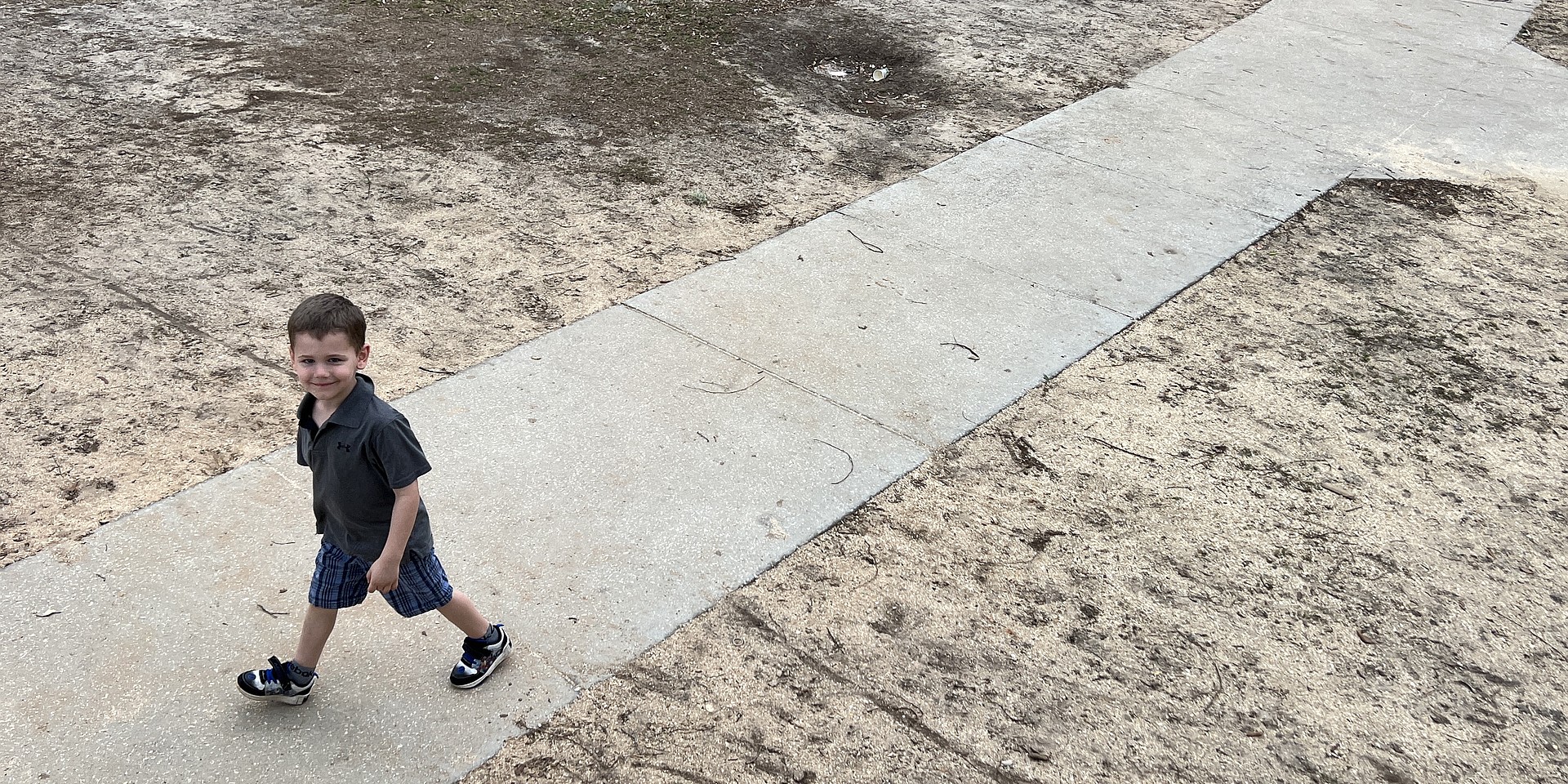Close encounter with a squirrel, but not close enough.

Before a recent car ride, Luke, my 5-year-old son, buckled his seatbelt all by himself. “That’s my talent,” he said.
Some day, he will develop even more impressive talents, but that’s a good start.
He showed me another talent while we were playing a board game at the dining room table.
“You know how some people can hold a pencil behind their ear?” he asked. Without waiting for a response, he stuck a yellow pencil behind his tiny ear. He looked at me slantwise, his head frozen. A second or two later, the pencil slipped out and fell to the ground.
That talent is still in development.
But I believe I know one of Luke’s most remarkable talents. I discovered it when we were at a park one day, and he saw a squirrel. He tip-toed toward it, inching closer and closer, trying to get close enough to pet it. When the squirrel looked up and saw him, it darted toward the nearest tree.
Luke turned and walked back to me, shoulders slumping, frowning. I tried to get his mind off his disappointment by engaging his imagination.
“What do you think it would be like to be a squirrel?” I asked.
He thought for a moment and then said, “I wouldn’t run away from people. Because I want people to be happy.”
I was amazed that someone so young was so confident that he could make people happy just by sticking around. One of Luke’s talents is to make people — even strangers — feel like friends.
I realized in that moment that sometimes I had tried to discourage that talent. For example, when he met another boy at McDonald’s, and, within minutes, they were laughing and racing between the tables at full speed. Or when he struck up a conversation with the parents of another boy on a swing set, with this ice breaker: “Where do babies come from?”
But talent development can be a messy business. We have to learn by trial and error how to harness our individual powers.
Whatever other talents Luke develops by playing instruments or creating art or any other traditional hobbies, I hope he never loses sight of the most important one: not running away from people who need us.